Results
-
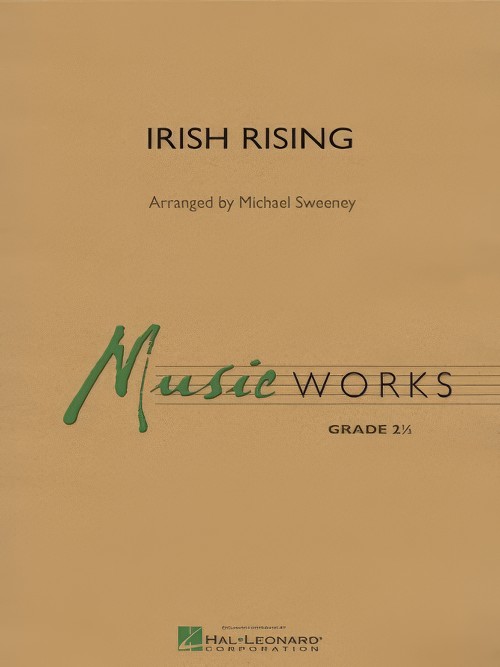 £53.50
£53.50Irish Rising (Concert Band - Score and Parts) - Sweeney, Michael
In Ireland's quest for independence, the Easter Rising of 1916 was a pivotal event that helped shape history and fan the flames of Irish freedom. Here is a sparkling medley of tunes from Ireland's rebellious past. The familiar Minstrel Boy leads to a lively setting of Wind That Shakes the Barley. The haunting, yet dramatic Foggy Dew then leads to the stirring march strains of The Boys of Wexford which features tin whistles (opt. flutes or piccolo) along with a driving rhythmic pulse.Duration: 5:20
Estimated dispatch 7-14 working days
-
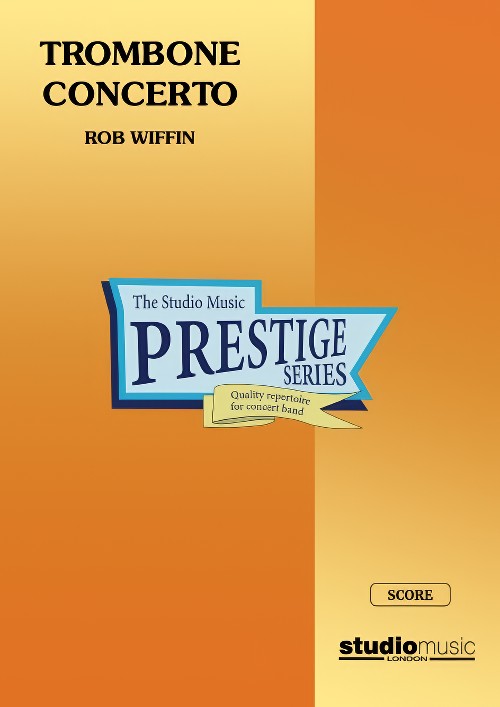 £32.95
£32.95Trombone Concerto (Trombone Solo with Concert Band - Score only) - Wiffin, Rob
The composer writes:My Trombone Concerto was commissioned by Brett Baker following an earlier piece I had written for him called Shout. The concerto was composed in Spain the summer of 2010. Once I started writing I realised this concerto was, inevitably, going to draw on my own experiences as a trombone player.The first movement was really a matter of getting the right thematic ideas and balancing the tutti and solo passages so, for formal structure, I studied the Gordon Jacob Trombone Concerto. There is a lyrical section preceding the first Allegro that owes much in spirit (but not the actual music) to The Eternal Quest, Ray Steadman-Allen's Salvation Army solo.The slow movement seemed determined to come out in the vein of a Richard Strauss song. I wanted to write ineluctably cantabile as we trombone players rarely get a chance to play the melody! There is a brief allusion to that wonderful moment when the trombone gets to sing above the orchestra in Sibelius' seventh symphony. Arthur Wilson (my teacher at college) died in the summer of 2010 so it seemed appropriate to dedicate this movement to him.The last movement is the lightest of the three in style and is slightly jazz-inflected, hopefully providing some fun for the soloist.While wanting to test the instrument, I did not set out with the intention of making the concerto difficult but there are undoubtedly challenges of technique, range and style to be met by the soloist.Recorded on Polyphonic CD QPRM161D Roman TrilogyDuration: 19:30
Estimated dispatch 7-14 working days
-
 £164.95
£164.95Trombone Concerto (Trombone Solo with Concert Band - Score and Parts) - Wiffin, Rob
The composer writes:My Trombone Concerto was commissioned by Brett Baker following an earlier piece I had written for him called Shout. The concerto was composed in Spain the summer of 2010. Once I started writing I realised this concerto was, inevitably, going to draw on my own experiences as a trombone player.The first movement was really a matter of getting the right thematic ideas and balancing the tutti and solo passages so, for formal structure, I studied the Gordon Jacob Trombone Concerto. There is a lyrical section preceding the first Allegro that owes much in spirit (but not the actual music) to The Eternal Quest, Ray Steadman-Allen's Salvation Army solo.The slow movement seemed determined to come out in the vein of a Richard Strauss song. I wanted to write ineluctably cantabile as we trombone players rarely get a chance to play the melody! There is a brief allusion to that wonderful moment when the trombone gets to sing above the orchestra in Sibelius' seventh symphony. Arthur Wilson (my teacher at college) died in the summer of 2010 so it seemed appropriate to dedicate this movement to him.The last movement is the lightest of the three in style and is slightly jazz-inflected, hopefully providing some fun for the soloist.While wanting to test the instrument, I did not set out with the intention of making the concerto difficult but there are undoubtedly challenges of technique, range and style to be met by the soloist.Recorded on Polyphonic CD QPRM161D Roman TrilogyDuration: 19:30
Estimated dispatch 7-14 working days
-
 £79.50
£79.50Oak Island Odyssey (Concert Band - Score and Parts) - Gassi, Vince
The Vikings, Blackbeard, Captain Kidd, the Freemasons, the Knights Templar, and Marie Antoinette - these are the legends of Oak Island and its two hundred year old tale of exploration and intrigue in Nova Scotia, Canada. With bold themes and energetic drive, this musical odyssey captures the sense of adventure that has surrounded the ongoing quest for buried treasure.Duration: 4:30
Estimated dispatch 7-14 working days
-
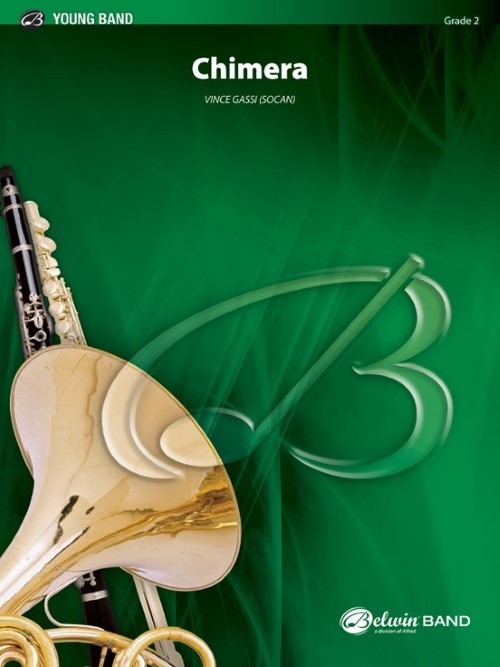 £58.50
£58.50Chimera (Ki-meer'-uh) (Concert Band - Score and Parts) - Gassi, Vince
Greek mythology is the source of inspiration for this new piece for young band. A chimera is a fire- breathing monster with a lion's head, a goat's body, and a serpent's tail. Fearsome indeed!! But just as dynamic is this musical tale of valour depicting a warrior knight's epic quest to defeat the beast. Spirited harmonies and energetic rhythms abound, contrasting perfectly with a moving lyrical section.Duration: 4.00
Estimated dispatch 7-14 working days
-
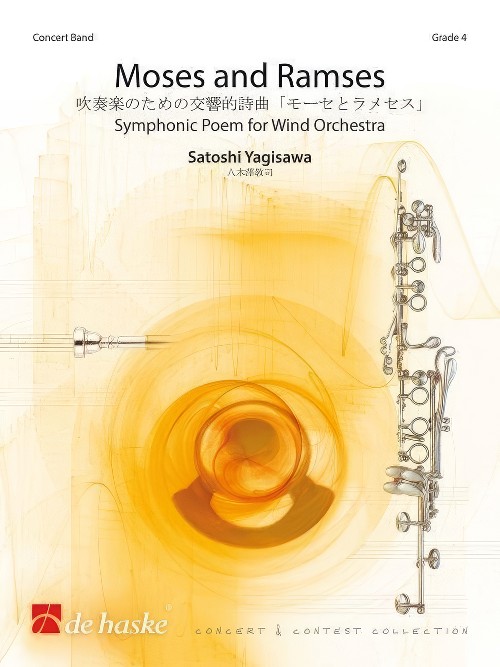 £149.99
£149.99Moses and Ramses (Concert Band - Score and Parts) - Yagisawa, Satoshi
This piece was commissioned by Matsudo Citizen Wind Orchestra for their 30th anniversary concert and premiered by the band conducted by Kenichiro Hasunuma in July 2009. This piece is typical of Satoshi Yagisawa in that it depicts a magnificent spectacle. This one is set in ancient Egypt and is based on the story depicted in the famous film "The Ten Commandments" (1956, directed by Cecil B. DeMille). One day Moses, who was raised by the rich royal family, found out that he was originally Hebrew. The Hebrews had been forced to live as slaves. Ramses, the prince directly descended from the Pharaoh, envied Moses' strength and popularity. After internal argument Moses decides to deliver the Hebrew from the Pharaoh's tyranny and escape from Egypt with them.The music starts with brilliant royal fanfare and depicts magnificent architecture, the Hebrew people forced into hard labour, and the slaves escaping from the Pharaoh's tyranny. At the climax they are at crisis point, trapped by the sea. Moses waves his staff and the miracle happens; the sea parts and Hebrew people successfully escape. Following on from Perseus - A Hero's Quest in the Heavens, this work Moses and Ramses is another piece written in the dramatic style favoured by Satoshi Yagisawa.Duration: 9:30
Estimated dispatch 7-14 working days
-
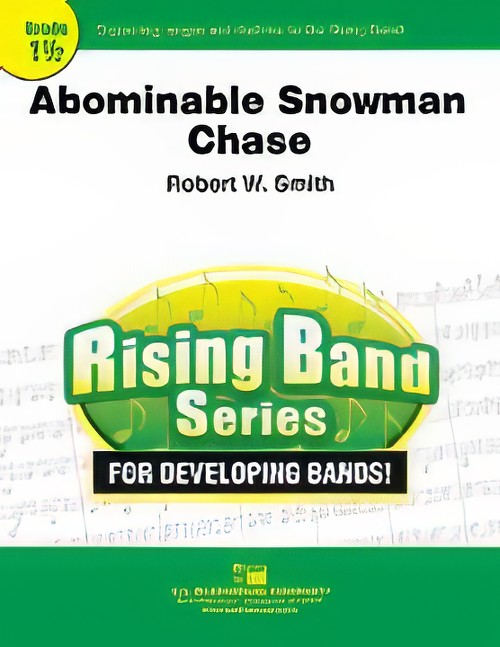 £46.00
£46.00Abominable Snowman Chase (Concert Band - Score and Parts) - Smith, Robert W.
From the opening footsteps of the ever-elusive Yeti, the chase is on through the Himalayas. The timpani (fixed pitch) is featured throughout as our quest for the Abominable Snowman unfolds. Suitable for programming during the holidays or at any winter concert, the soundscape created through harmonic and percussive effects will make this a favourite for all. An unusual composition creating unusual musical and educational results!Duration: 1.50
Estimated dispatch 7-14 working days
-
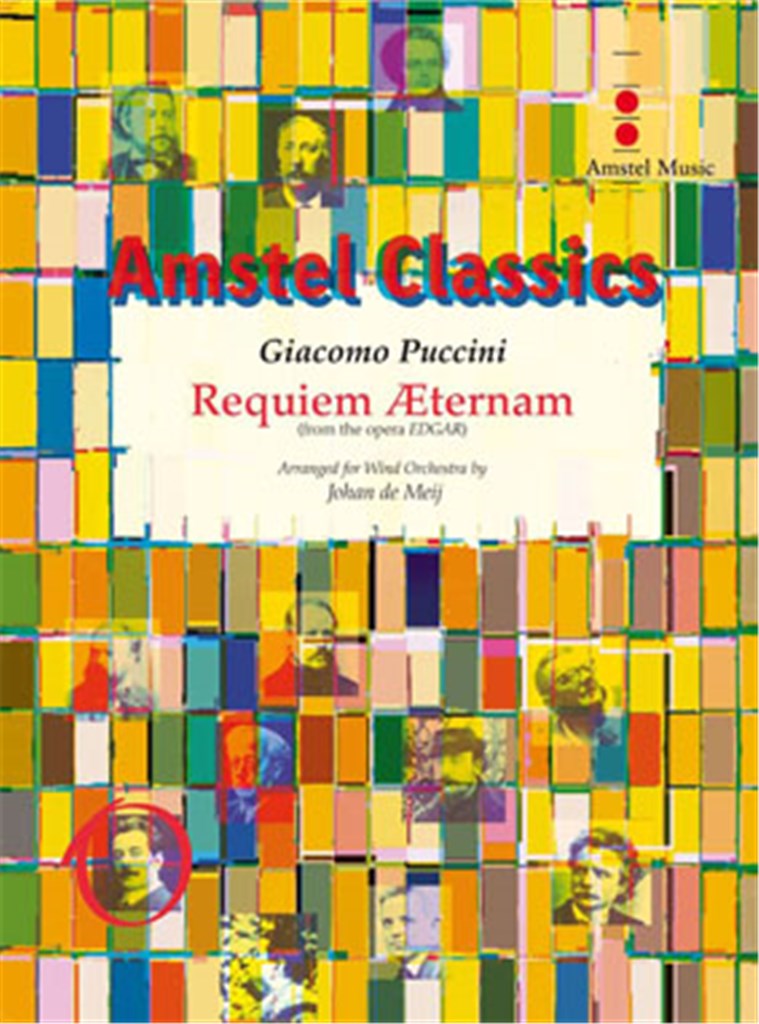 £68.00
£68.00Requiem Aeternam (from Edgar) (Concert Band - Score and Parts) - Puccini, Giacomo - De Meij, Johan
Giacomo Puccini was commissioned to write a second opera after the resounding success of his first, Le Villi. However, the original four-act, grand opera Edgar, to a libretto by Ferdinando Fontana, received a rather lukewarm reception at its premiere in La Scala in Milan in 1889. Initially, the work was only performed three times. Of all the planned performances in the subsequent two years, only one took place, in Lucca, Puccini's birthplace. There, the work was well received. Nevertheless, the composer decided to make drastic changes to Edgar the most radical being the reduction of the opera to three acts, as well as altering a few arias, characters and instrumental parts. In its revised form, the work was even less popular than before. The discarded fourth act later provided material for Tosca (the duet Amoro sol' per te), but Puccini never felt the need to defend Edgar as he did other less fortunate operas, such as La Rondine and Suor Angelica. On a piano excerpt for his female friend Sybil Seligman he even corrupted the title to 'E Dio ti Guarda da quest' opera' (may God preserve you from this opera). This did not prevent Arturo Toscanini performing the Requiem from the third act at Puccini's funeral in Milan Cathedral on 3 December 1924. The Requiem in the third act is being played when the long funeral procession carries the alleged body of Edgar, the confused young man hesitating between the love of the virtuous Fidelia and the exotic Tigrana. The mass hails Edgar as a hero, but a monk claims that he has betrayed his country for a few gold pieces. When the soldiers try to desecrate the body, they discover that the armor contains none. The monk reveals himself as Edgar. He wants to leave with his faithful Fidelia, but the vengeful Tigrana stabs him and kills Fidelia. Edgar grieves over the lifeless body of his beloved, while Tigrana is arrested and the people submerge into prayer. Duration: 3.30
Estimated dispatch 7-14 working days
-
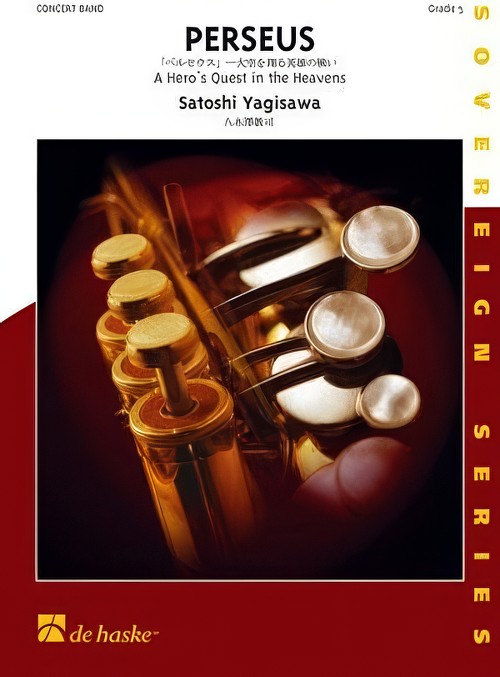 £134.99
£134.99Perseus (Concert Band with Optional Choir - Score and Parts) - Yagisawa, Satoshi
A Hero's Quest in the HeavensPerseus is the famous Greek hero who saved Princess Andromeda,as she was about to be sacrificed to the sea monster Kraken. Satoshi Yagisawa was inspired by the story of Perseus, which was made famous in the 1980's movie Clash of the Titans. The music is full of drama and it is easy to imagine the dark underworld as monsters battle to survive. The members of your band or a guest choir can sing the choir parts, adding to the fun of this epic tale!Duration: 7.00
Estimated dispatch 7-14 working days
-
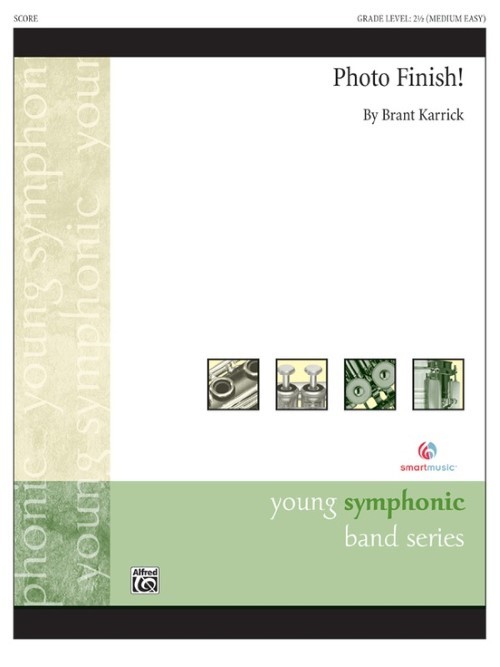 £52.95
£52.95Photo Finish! (Concert Band - Score and Parts) - Karrick, Brant
It's post time! The bugler splits the air with the familiar Call to the Post, and they're off! There's nothing more graceful, powerful, and exciting than a group of thoroughbreds pounding toward the finish line in their quest to become the next big winner. Photo Finish! is a musical tribute to the colour, pageantry, and hoof-pounding action of an exhilarating horse race.Duration: 3.30
Estimated dispatch 7-14 working days
